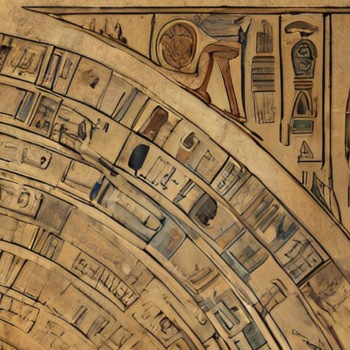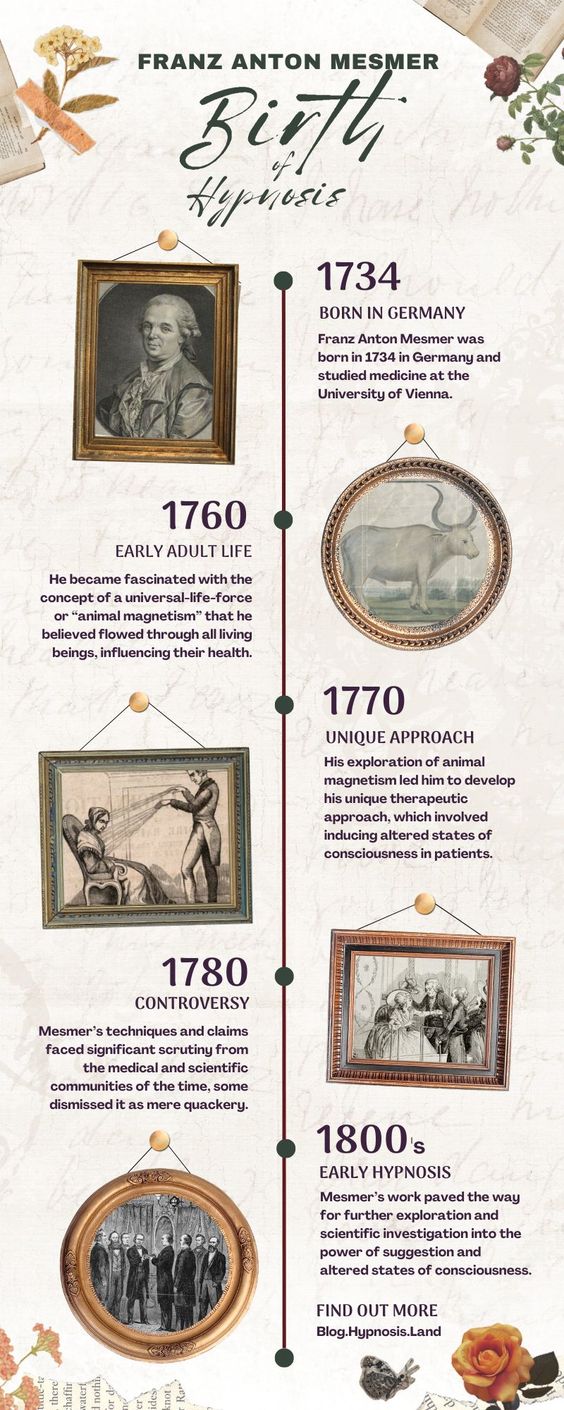
Hypnosis… a practice often associated with modern therapeutic techniques, actually has its roots firmly grounded in the ancient world.
From the sleep temples of ancient Egypt to the mysteries of ancient Greece and the healing temples of Asclepius… the influence of antiquity on the development of hypnosis is evident.
Throughout history, hypnosis-like techniques and understandings have been used as powerful tools for healing, personal growth and exploration of the human mind.
Hypnosis and Antiquity: Ancient Egypt
In this ancient civilizations, hypnosis-like techniques played a central role in healing rituals in many of the temples.
The Sleep Temples of Egypt, dating back over 4,000 years, offered a unique environment for seekers of healing. Through elaborate rituals and suggestive environments, individuals would enter a trance-like state, experiencing visions and receiving spiritual guidance.
Hypnotic Rituals in Greek Mysteries
The Ancient Greeks (especially in the context of their mystery cults) practiced various forms of hypnotic rituals. These rituals aimed to induce altered states of consciousness in others… where these participants then experience profound visions, spiritual insights and received psychological healing.
The Eleusinian Mysteries (celebrated in honor of the goddess Demeter) involved initiation rites such as: sensory deprivation, repetitive chants and dramatic performances, inducing hypnotic-like states of Altered Consciousness.
Experiencing an ‘Epiphany’ moment, that ‘Ah-ha’ moment, can create life changing results and was highly valued in Minoan Civilization.
Hypnosis in the Healing Temples of Asclepius
Healing Temples (dedicated to Asclepius the Greek God of Medicine), were popular centers for seeking relief from physical and mental ailments in ancient Greece.
These temples employed methods similar to modern hypnosis, utilizing sleep-inducing techniques, suggestive healing practices, as well as dream interpretation.
The priests, known as Asclepiads, would induce a state of relaxation (hypnosis) and suggest beneficial dreams to aid in the healing process (hypnotic suggestions)
Hypnosis and Antiquity: Ancient India
Ancient India also offers more insights into the roots of hypnosis…
Yoga, employs various techniques to achieve altered states of consciousness (like self-hypnosis) through focused attention, Pranayama, Mantra, meditation including eyes-open meditation with mandalas… where practitioners enter deep states of relaxation and heightened suggestibility.
Yoga also includes guided meditation practices and Yoga Nidras that very much resemble hypnosis… what is the difference between a guided meditation and guided hypnosis… and where do they overlap…
The History of Hypnosis
The origins of hypnosis can be traced back to the dawn of civilization… where ‘Hypnosis’ is the modern label to describe the up-to date-version of these thousands of years old practices.

Read more about the Birth of Hypnosis with Franz Anton Mesmer and.
Scottish surgeon James Braid, often referred to as the Father of Hypnosis, James Braid played a pivotal role in shaping the field of hypnotism as we know it today…
Émile Coué, French psychologist and pharmacist and his groundbreaking work in autosuggestion revealed the incredible potential of the human mind and its ability to influence behavior, enhance well-being, and promote healing.
Dr Azam, a 19th-Century French physician, played a pivotal role in advancing the field of Hypnosis… and even the creation of Dr Jekyll and Mr Hyde.
Milton H Erickson developed an approach to hypnotherapy that challenged traditional techniques. An approach that focused on the uniqueness of each individual’s experience.
Find Out about becoming a Licensed Hypnotic Practitioner Learn the Art & Science of Hypnosis for positive holistic change. Help people and get paid.
